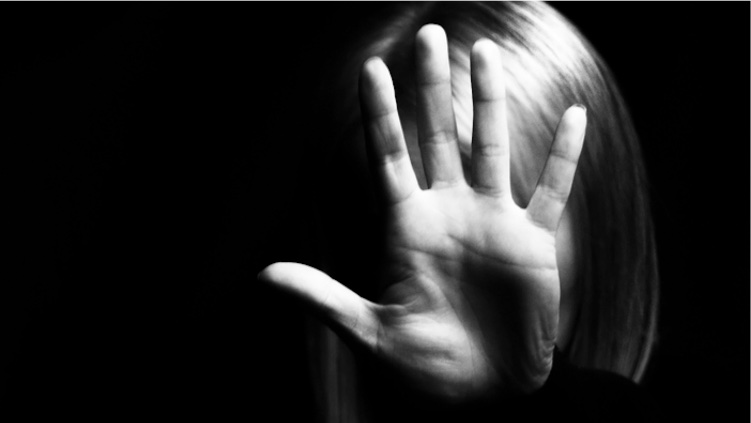ISKCON North America Releases Statement on Domestic Abuse
By Madhava Smullen | Апр 22, 2019

ISKCON North America has released an official statement condemning domestic abuse. Adopted by the North American GBC in January 2019, it was also discussed by temple presidents during their annual meeting in Washington, D.C.
The document begins with a concise, one-paragraph statement as follows: “Resolution: Domestic abuse is illegal, indefensible and never acceptable within the International Society for Krishna Consciousness (ISKCON). Any interpretation of Vaishnava religious or social teachings that condones, endorses, or justifies domestic abuse is rejected by the North American Governing Body Commission (GBC).”
A cover letter accompanying the statement read, “Sadly, our ISKCON society is not immune to domestic abuse. Sometimes devotees believe that domestic abuse is tolerated within our society. Thus, the NA GBC determined it necessary to make a clear, strong statement that domestic abuse is never acceptable.”
The document was developed by a team of devotees led by Praharana dasi, Amrita Hari, Devahuti Ramnarine, Poonam Kapadia, and Anuttama dasa. They spent many months researching and drafting it, drawing from government websites, professional resources, and devotee experts. They also benefitted from the input of senior leaders including Radha dasi, Malati dasi, Kalakantha dasa, Tamohara dasa, Uttama dasi, Partha dasa, and Vishalini dasi.
After the opening statement, the document provides an informational overview. In “The Problem of Domestic Abuse,” it notes, “Domestic abuse is the leading cause of injury to women in many countries, including the United States, where it exceeds injuries from car accidents, muggings, and rapes combined…In America, one in four women will be victims of domestic abuse in their lives.”
In the section “Vaishnava Response to Domestic Abuse,” such abuse is called “a severe violation of the essential practices of Krishna consciousness and Vaishnava culture.”
The document also includes directions for how ISKCON leaders should help if there is domestic abuse in their communities; guidance for abuse victims; professional resources for victims such as domestic violence hotlines; and tips on how to prevent abuse by educating the community.
“Domestic abuse is not black and white, and it can be difficult to understand the best way to handle these situations,” says Poonam Kapadia, a young professional devotee who came to the project after seeing women, including some of her friends, being mistreated in ISKCON communities. “However, there are inappropriate responses that community members and leadership should be wary of.”
“For instance, victims should never be blamed, nor should they simply be told that it’s their responsibility to make the marriage work. This response is not helpful for someone in a dangerous situation. Leaders must be educated on the severity of this issue – including the cycle of abuse and the long-term consequences for children who witness the abuse – in order to respond appropriately, as they are obliged to help victims in their communities.”
The document is followed by a separate appendix with information on definitions of abuse (physical, sexual, emotional and psychological); the effects of domestic abuse on children; scriptural quotes showing that protection is a sastric imperative; why women don’t leave abusive relationships; signs that the abuser isn’t changing; and deciding whether to leave a relationship. There are also real life examples of what abuse can look like in an ISKCON household.
“Some of the examples are extreme cases, and others are more mild,” says Poonam. “The point of including real life cases is so that readers can identify characteristics of abuse in relationships, and recognize when there is a problem.”
Finally there is specific advice for ISKCON community leaders. They are asked to partner with and learn from local law enforcement and domestic abuse shelters; refer victims to trained professionals for help; and to speak out in public forums such as Sunday Feast classes against abuse, which can include “the misapplication of scripture to guilt, manipulate and control others.”
“Telling the community publicly that ISKCON opposes domestic violence and that we aspire to be a safe place for victims can be the first step towards prevention, because we are building awareness of the issue,” says Poonam.
The ISKCON Statement on Domestic Abuse has been distributed to all ISKCON North American leaders. They have been requested to read it in full, discuss it during their board meetings, publish it to their temple websites, and distribute it in print or electronically to other community leaders.
Later, a brochure summarizing the topic will be published to distribute and post in temple lobbies and bulletin boards for the general devotee public.
Other future ideas include training videos for leaders, and possibly a dedicated internal organization, similar to ISKCON’s Child Protection Office, comprising trained professionals to whom victims could be referred.
For now, the statement is an important first step.
“I’m hopeful that after reading the Domestic Abuse Policy, communities will be educated about the signs of abuse and how to prevent it,” says GBC Member Anuttama dasa. “Domestic abuse should never be tolerated in the Vaishnava community; we need to protect vulnerable individuals and encourage them to seek professional help when needed.”
Please read the full statement here: https://iskconnews.org/iskcon-statement-on-domestic-abuse,6929/
Read the Appendix here: https://iskconnews.org/iskcon-statement-on-domestic-abuse-appendices,6930/
* * *
Devotees who are passionate about preventing domestic abuse and caring for victims are invited to get involved by writing to Poonam at poonamkapadia7@gmail.com















